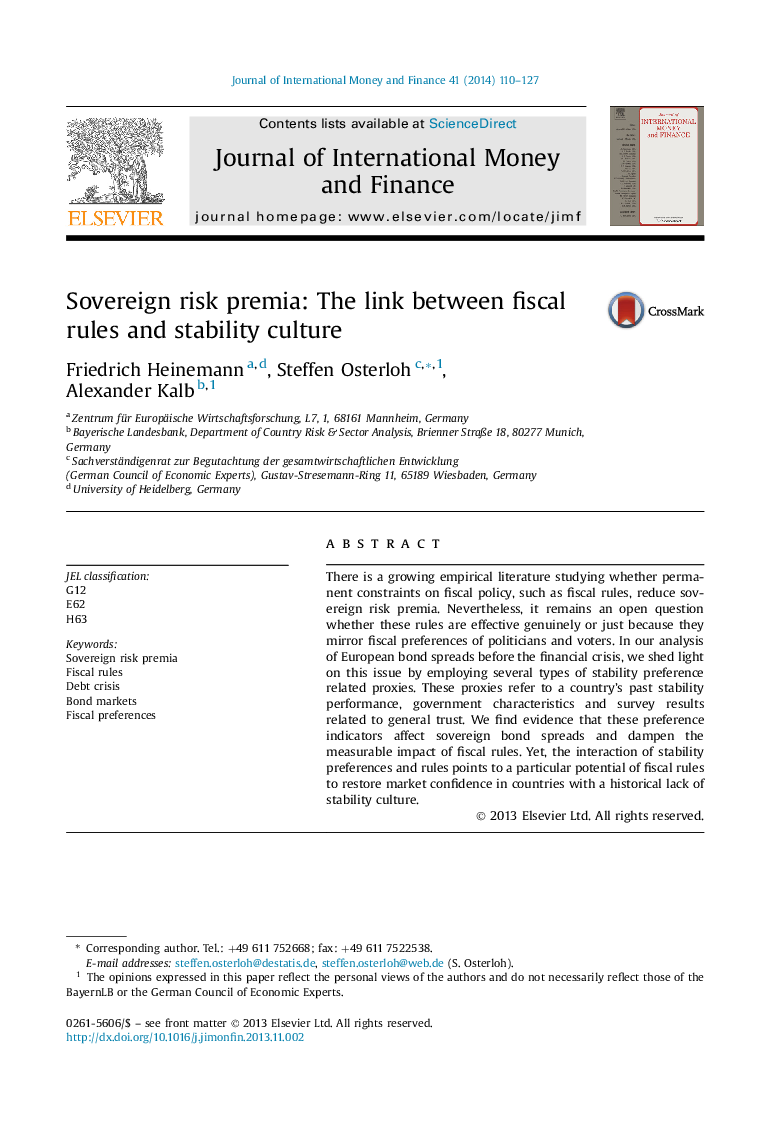| کد مقاله | کد نشریه | سال انتشار | مقاله انگلیسی | نسخه تمام متن |
|---|---|---|---|---|
| 964004 | 1479175 | 2014 | 18 صفحه PDF | دانلود رایگان |
• We study the determinants of risk premia of European sovereign bonds before the financial crisis.
• Cross-sectional analysis shows that countries with strong fiscal rules had lower risk premia.
• This correlation vanishes after controlling for several proxies related to differences in stability culture.
• Our preference indicators affect sovereign bond spreads and dampen the measurable impact of fiscal rules.
• Fiscal rules are more effective in restoring market confidence in countries with a historical lack of stability culture.
There is a growing empirical literature studying whether permanent constraints on fiscal policy, such as fiscal rules, reduce sovereign risk premia. Nevertheless, it remains an open question whether these rules are effective genuinely or just because they mirror fiscal preferences of politicians and voters. In our analysis of European bond spreads before the financial crisis, we shed light on this issue by employing several types of stability preference related proxies. These proxies refer to a country's past stability performance, government characteristics and survey results related to general trust. We find evidence that these preference indicators affect sovereign bond spreads and dampen the measurable impact of fiscal rules. Yet, the interaction of stability preferences and rules points to a particular potential of fiscal rules to restore market confidence in countries with a historical lack of stability culture.
Journal: Journal of International Money and Finance - Volume 41, March 2014, Pages 110–127
